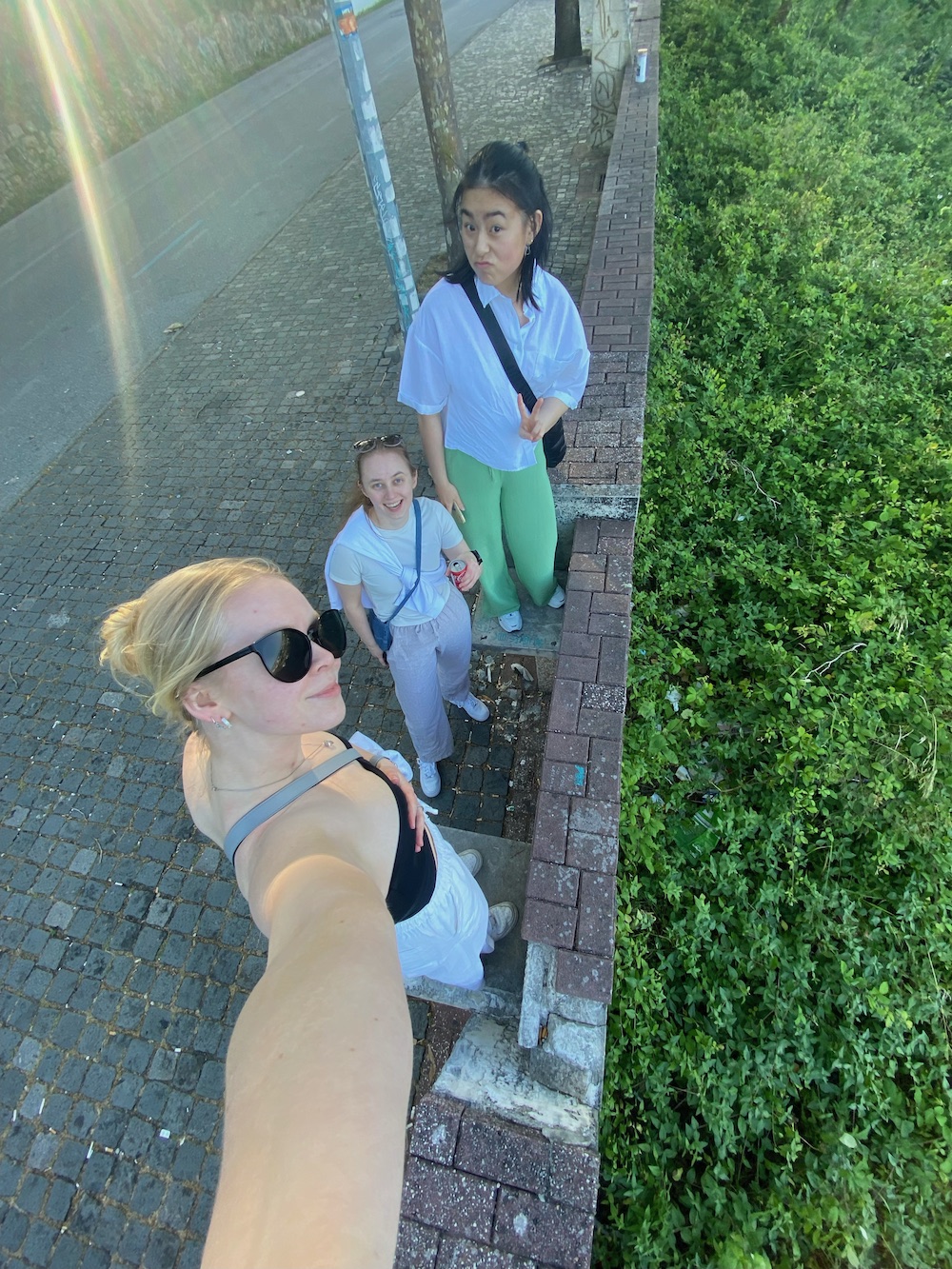The study year 2022-2023 has been an amazing year for Biotrick and the Biomedical laboratory science (BLS) study at Western Norway University of applied Sciences as we finally got to meet each other after 2 years of Covid-19. Getting to meet peers and teachers whilst also appearing in a classroom for the first time in a while was nice. As for Biotrick we got so much done this year, attending a conference in Helsinkin and setting up the first ever Biotrick conference in Coimbra. This was an experience of a lifetime as a student who got to experience firsthand how special BLS really is, and the magnitude of the field.
EPBS conference in Helsinki, Finland
In November of 2022 I (Fridrika Svafa) attended the EPBS conference in Finland as a student representative for BLS in Western Norway University of applied Sciences. It was a weekend in Helsinki where we went to a conference which had different speakers holding presentations. These speakers spoke about the biomedical field and the surroundings of how we can improve and get better for the future. Hearing these professors and doctors really sparked a bigger interest for the field, whilst also getting inspired to think more creatively. Some of them talked about the technological approach to the tasks at the hospitals and how we can make it easier whilst also more effective for ourselves.
In the lunch breaks we got to mingle and talk to the professors and attendees, where a lot of interesting conversations took place. I was amazed to see all these different nations come together to talk about BLS, it was intriguing listening to these conversations and being able to participate in them. I also got to meet the other students for different countries who were studying the same as I do, some of them where on they’re last year of a bachelor whilst others on their masters. While mingling and interacting with these students I got a new viewpoint on how different yet alike our educations were and to me that was quite fascinating.
Onward to the workshops which was a great experience. The workshop I was in was called “design thinking”, and we were divided into groups of 5-6 people. I personally liked this workshop a lot because it gave me an insight on how ideas can be sorted into a solution or a good product.
Biotrick conference in Coimbra, Portugal
On May 11th we attended the first European conference on BLS Education in Coimbra, Portugal. We were three BLS students from Western Norway University of applied Sciences and all of us were on our first year of a bachelor’s degree. The conference was set in the middle of the exam period as our 2nd semester was coming to an end. The day before we left for Portugal, we had an Exam in lab techniques which was a little stressful, but we made it. It was a nice experience to visit Coimbra whilst also getting a small break from studying. We had a lot of free time and got to explore the city and its surroundings. At the day of the conference, we were so lucky that we got to meet some of the students that were on exchange in Coimbra from our University, they were writing their bachelor at the Polytechnic Institute of Coimbra and told us their thesis which was very intriguing. In the last semester of our BLS study program at our school we can choose to write our bachelor’s paper abroad, through an exchange program. Coimbra is one of the places we can choose from.
During our Stay we also got to learn a bit about a Portuguese tradition, pilgrimage. At the 12th and 13th of May there is held big celebrations in a city called Fatima, a religious pilgrimage site. They celebrate the apparitions of (Our lady) Mary to the three witnesses of Fatima (Pilgrimages of Fatima). We saw a lot of pilgrims walk through the city and all of them were wearing the same reflective vest. Their journey to Fatima starts at the front of their house, so they must plan their route to arrive at the right time. Some walk for days whilst other weeks.
At the day of the conference, there were exciting lectures about the development within the Biomedical Laboratory Science studies in various countries, and the importance of evidence-based knowledge. One gained insight to how the practice in education in Norway is distributed between the educational institution and clinical laboratories. There was also a lecture about a pilot project from Finland regarding how XR (Extended Reality) can be used in education and how one can teach students residing anywhere in the world. For each of the lectures there were exciting and rewarding workshops, where one planned one’s own game, discussed practice and how to integrate research into education. Various posters were presented that addressed intriguing topics within the field of Biomedical Laboratory Science.

